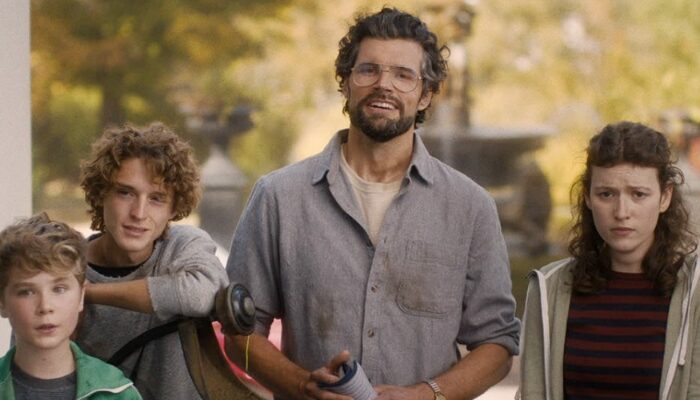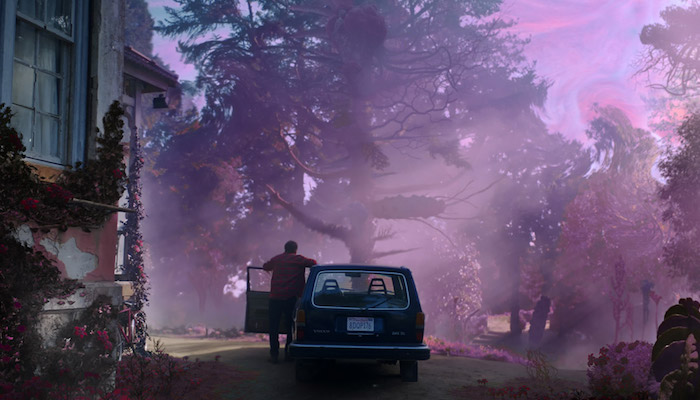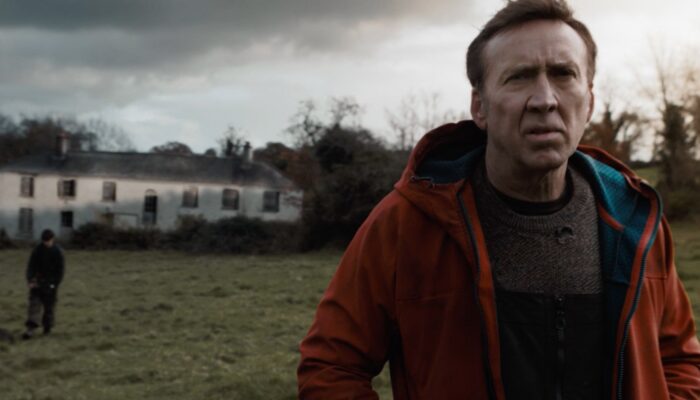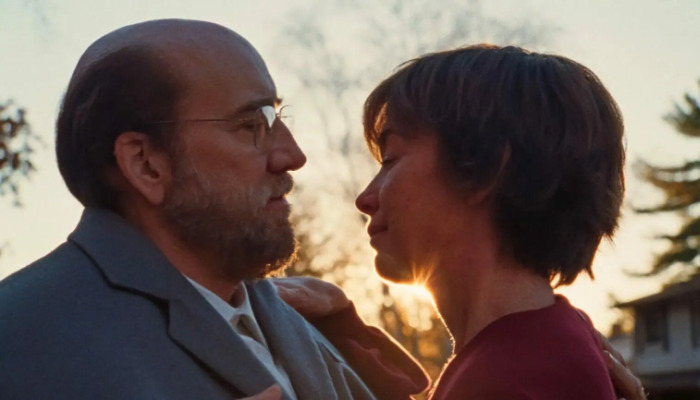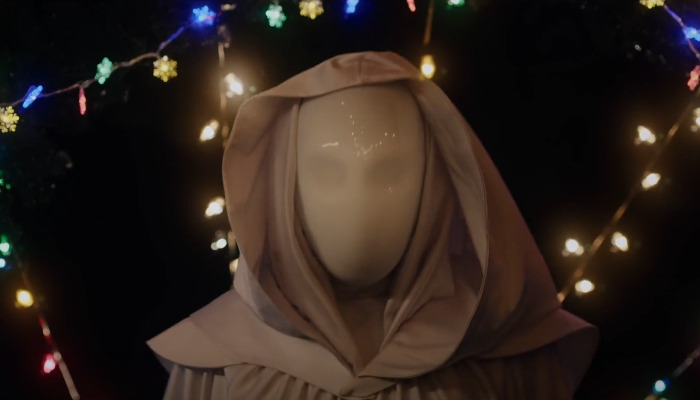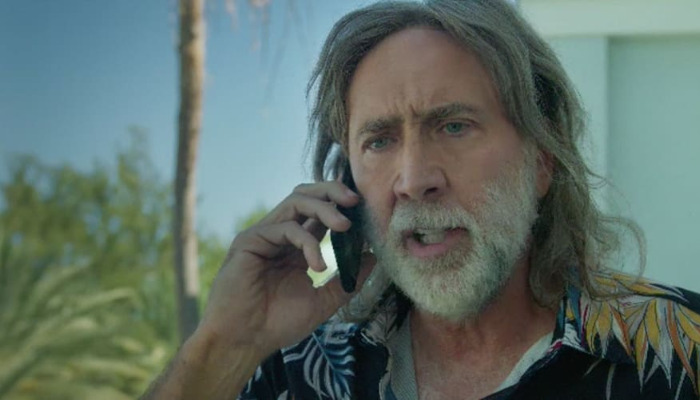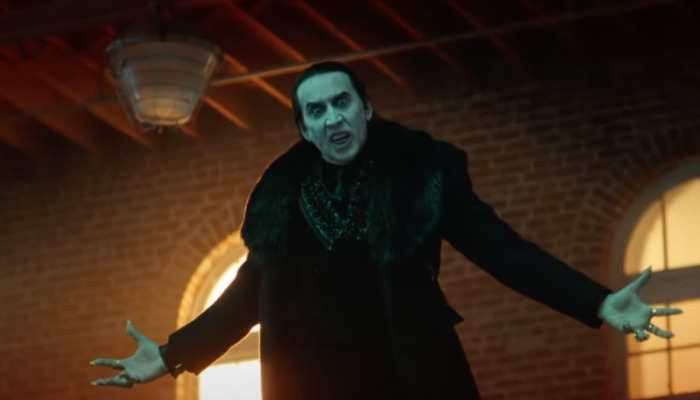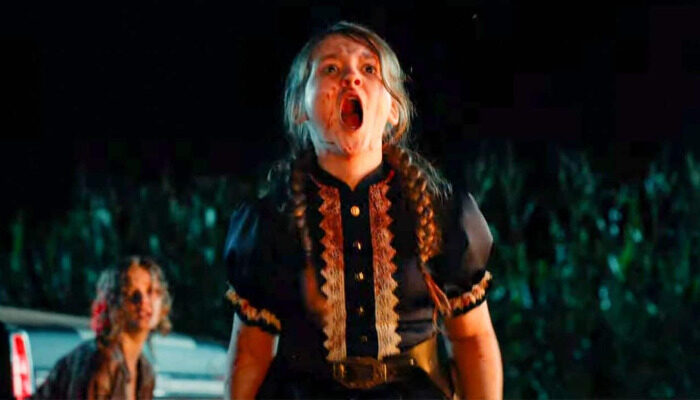Film Review: COLOR OUT OF SPACE (2019): Nihilistic Horror That’s Out of This World
Color Out of Space Review
Color Out of Space (2019) Film Review, a movie directed by Richard Stanley and starring Nicolas Cage, Joely Richardson, Madeleine Arthur, Elliot Knight, Tommy Chong, Brendan Meyer, Julian Hilliard, Q’orianka Kilcher, Josh C. Waller, and Melissa Nearman.
It’s 2020 now, and the aliens have adapted to the times. Brute militaristic force is no longer effective, so they need a more infectious method instead – one that’ll seep in and corrupt us all before we even know what’s happening. That’s right: the aliens are now broadcasting bad vibes.
Color Out of Space, Richard Stanley’s long-gestating adaptation of the H.P. Lovecraft short story, is a musing on the unforgiving prospect of chance filtered through technicolor-drenched psychedelia.
The film follows family man Nathan Gardner (played by Nicolas Cage) as he takes up the idyllic life of alpaca farming deep in the forests of Massachusetts, a relaxing alternative for his wiped-out workaholic wife, Theresa (Joely Richardson). Nathan has faith that the country air will be rejuvenating for Theresa, who’s recovering from a cancer-related surgery a few months prior. Despite the sudden change of pace, the rest of the Gardner family makes the most of it: the restless daughter Lavinia (Madeleine Arthur) kicks up her practices in the mystic arts; the eldest son Benny (Brendan Meyer) takes advantage of the woods as a stoner’s paradise; and the youngest son Jack (Julian Hilliard) explores and sketches his way around the large, forested abode. Despite their disagreements and differences, the family members collectively pull their own weight will looking out for everyone’s well-being – even if that means putting up with their dad’s corny sense of humor (and sense of cooking).
Everything is soon thrown out of balance when one night a meteor-like object lands in their yard with a deafening blow and a blinding pink-purple flash. While it briefly attracts the attention of the local news and the local town’s opportunistic mayor (Q’orianka Kilcher), the meteor seems to disappear from the zeitgeist as quickly as it arrived – literally and figuratively, as by the next morning it has completely vanished from its crater. But the residue of shock still lingers in various sensory overloads, driving the Gardners further towards their collective breaking point. Lavinia and Benny, with the help of dedicated hydrologist Ward (Elliot Knight), scramble to find out what’s causing reality to crumble before their whole family falls victim to it, but one thing’s for sure: they should probably stop drinking the water.
Seeing how this has been touted as Stanley’s return to narrative features after more than 20 years, it’s easy to read the film as evidence of him using the time to really hone his vision. Despite some jumpy pacing and convenient plotting, Stanley has a stable and steady hand in establishing his tightly-knit world, which really comes to aid when the second half gets wild. It nicely couples with the vibrant production design and Steve Annis’ cinematography – the latter of which gives everything just a little too much fill, evoking the detail-soaked drawings of ‘80s-era movie posters and pulpy paperback covers à la “Heavy Metal”.
The nuclear family structure is a classic horror staple, but the tender charm and downright sweetness that comes across in the introductions feels like a riff on Spielbergian archetypes of decades past. (Despite its extraterrestrial elements, it feels more akin to the Spielberg-produced Poltergeist than anything else.) There’s even that sense of exaggeration of the oddities of everyday life, from the subtle – Lavinia and Benny’s trove of illustrative name-calling to Nathan’s loving-but-out-of-touch-with-what’s-cool fatherly stature – to the obvious – the Gardners being completely cool about a burnt-out squatter residing on their property (played with goofy dedication by Tommy Chong) and being okay with having a dog that looks more like a domesticated wolf above anything else – but it’s all toned down just a bit. Everything’s off-kilter but not in a wholly disorienting way, and it allows us to empathize with the characters rather than disconnect from them. Humanization rather than parody.
From these soft and welcoming calling cards Stanley lures us further in towards his nihilistic black hole, and once we realize how far we’re getting pulled in we’re too close to the epicenter to escape it. Cage’s surprisingly warmhearted aura melts away into his off-the-wall bonkers persona that we’ve come to expect from him as of late, in a way that’s simultaneously sudden yet subtle so that its truly-bonkers terror takes its time to set in. Richardson is allowed her own descent into madness, too, acting as the sinisterly quiet yin to Cage’s brasher yang.
These familiar stylistic aspects slowly peel away to reveal nothing but a bare-bones skeletal structure wailing in abject terror, which Stanley reconstructs into nightmare incarnate. He smears his visuals with the rainbow-like veneer of spilt oil, smearing motion together to make us feel like we’re drowning in the stream of time. The horror isn’t in a tangible monster but rather an indeterminable entity…this alien invasion isn’t anything but a “color”…a feeling…a vibe.
In that way, Color Out of Space is certainly “about something”. The Gardners know something bad is happening, but are hopeful that it’ll resolve itself – Nathan’s rash-covered arms just need to heal, Lavinia’s queasiness will pass, and that high-pitched screeching sound will eventually stop, right? Whether you read it as metaphor for the creeping on-set of fascism and/or environmental destruction, it’s still a light condemnation of status-quo worshippers who’d rather believe in infinite stagnation than accept, adapt, and confront inevitable change. It’s the theoretical made manifest: ideological horror rendered onto the body with tangible results.
The scarier read, though, is that it’s not about anything. Color Out of Space is another reminder of the unfairness of life and the cruelty of chance, and how terrible things can happen to seemingly good people. No one deserves to be afflicted with a life-threatening illness…or to experience trauma…or to bear witness to the tearing of reality as an unknown entity morphs all biological matter around it…but it still happens regardless. Lack of control and certainty strikes a distressing nerve.
It’s tempting to read Stanley’s ultimate message as a defeatist one, given the interrupted trajectory of his career and his characters’ parallels to that of his own life (his mother was also afflicted with and later died from cancer). However, that would ignore the hope with which he imbibes his characters – particularly Ward, who Knight portrays with a naïve sense of wide-eyed optimism that provides a suitable spark of hope in the dark finale. But it’s still depressingly dire in its insistence on the indifference of the cosmos, and teeters uncomfortably close to the edge of suggesting that as a viable earthbound outlook rather than just a sobering reminder to have some perspective.
Horrifyingly stomach-churning and thematically depressing, Richard Stanley’s Color Out of Space is a gooey piece of genre goodness that’ll go down with ease and stick in your craw for days. To those who revel in having the aliens crawl out of the well to shame humankind, tune in to this stark frequency. But for those who don’t want to hear it, put on your tinfoil hats instead.
Rating: 7/10
Leave your thoughts on this Color Out of Space review and the film below in the comments section. Readers seeking to support this type of content can visit our Patreon Page and become one of FilmBook’s patrons. Readers seeking more film reviews can visit our Movie Review Page and our Movie Review Pinterest Page. Want up-to-the-minute notifications? FilmBook staff members publish articles by Email, Twitter, Instagram, Tumblr, Pinterest, and Flipboard.
Related Articles
FilmBook's Newsletter
Subscribe to FilmBook’s Daily Newsletter for the latest news!

